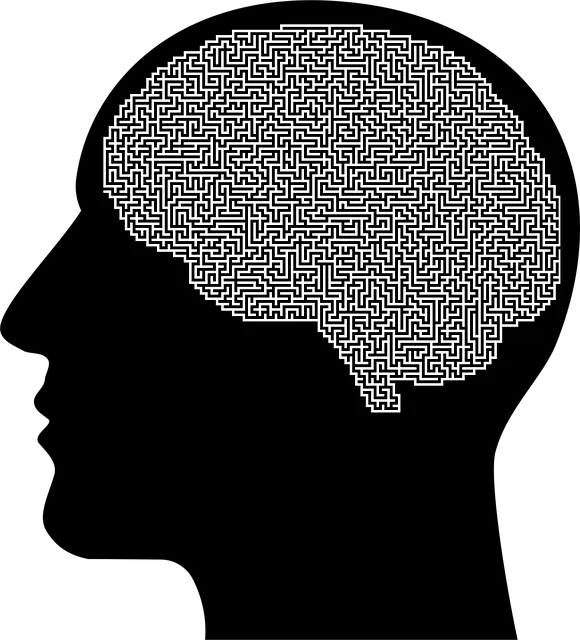Evaluating Kaiser Permanente psychiatry programs in Lafayette requires a blend of quantitative (participation rates, mental health improvements) and qualitative (stakeholder insights, personal narratives) methods. This ensures services address community needs, guide development, and optimize mental wellness support. The dedicated phone line offers initial guidance, while workshops equip individuals with stress management tools. Community engagement through the phone number provides firsthand feedback for tailored programs like Mood Management and Emotional Intelligence exercises. Researchers use qualitative or quantitative assessments to track program success, measuring changes in symptoms, behaviors, and overall functioning. These evaluations are crucial for refining programs and enhancing their impact on mental health support seekers.
Mental wellness program evaluation is a vital process to ensure effectiveness and improve initiatives. This article explores diverse methods, from qualitative insights through interviews and surveys to quantitative data analysis. We delve into practical examples, such as Lafayette’s community engagement approach, and valuable resources like the Kaiser Permanente Psychiatry Phone Number for mental health professionals. By understanding these evaluation techniques, organizations can track progress, measure success, and adapt programs to better serve individuals in need.
- Understanding Mental Wellness Program Evaluation
- Kaiser Permanente Psychiatry Phone Number: A Resource
- Lafayette Community Engagement in Evaluations
- Qualitative vs. Quantitative Assessment Methods
- Measuring Success: Outcomes and Impact Tracking
Understanding Mental Wellness Program Evaluation

Evaluating mental wellness programs is a multifaceted process that goes beyond mere satisfaction surveys. It involves assessing the effectiveness, accessibility, and overall impact of initiatives designed to promote emotional well-being. This comprehensive evaluation ensures that resources are allocated efficiently and that interventions truly address the needs of individuals facing various mental health challenges. By examining outcomes related to Crisis Intervention Guidance, Emotional Healing Processes, and Mental Illness Stigma Reduction Efforts, organizations like Kaiser Permanente can optimize their programs in Lafayette and beyond.
The process demands a mix of quantitative data, such as participation rates and statistical improvements in mental health indicators, and qualitative insights gained through stakeholder feedback and personal narratives. This dual approach allows for a holistic understanding of program success, identifying both tangible achievements and areas requiring refinement. Such evaluation methods not only hold the potential to enhance existing services but also guide future decisions regarding the development and implementation of evidence-based programs aimed at fostering mental wellness in communities.
Kaiser Permanente Psychiatry Phone Number: A Resource

For those seeking support for their mental wellness, Kaiser Permanente Psychiatry offers a valuable resource through its phone line in Lafayette. This accessible service provides an initial point of contact for individuals facing mental health challenges, offering guidance and direction to suitable care options within the network. The psychiatric professionals are equipped to handle a range of concerns, from managing stress and anxiety to coping with more severe conditions, ensuring that patients receive the appropriate level of care.
The Kaiser Permanente approach to risk management planning for mental health professionals is comprehensive, focusing on both individual well-being and organizational resilience. They also facilitate Stress Management Workshops designed to equip individuals with practical tools for navigating stressful situations, fostering a healthier work-life balance. Through these initiatives, the organization not only supports its members but also promotes the development of coping skills that can benefit anyone struggling with mental wellness issues.
Lafayette Community Engagement in Evaluations

Lafayette Community Engagement plays a vital role in evaluating mental wellness programs, particularly those offered by organizations like Kaiser Permanente. By actively involving community members and stakeholders, including reaching out to the public via the Kaiser Permanente psychiatry phone number Lafayette, program developers gain valuable insights into the effectiveness and impact of their initiatives. This collaborative approach ensures that evaluations are not just top-down but reflect the genuine needs and experiences of those the programs aim to support.
Through community engagement, mental wellness programs can assess how elements such as Mood Management, Emotional Intelligence, and Self-Awareness Exercises resonate with local participants. This grassroots feedback is crucial in refining programs, making them more culturally relevant and accessible. By embracing community input, Kaiser Permanente psychiatry services in Lafayette can create interventions that not only meet but exceed expectations, fostering a more inclusive and impactful mental health support network.
Qualitative vs. Quantitative Assessment Methods

When evaluating mental wellness programs, researchers often employ either qualitative or quantitative assessment methods, each offering unique advantages and insights. Qualitative methods delve into individuals’ experiences, perspectives, and feelings regarding the program, allowing for a deep understanding of their subjective well-being and satisfaction. This approach is particularly useful in exploring complex emotional responses and personal growth during participation in initiatives like Kaiser Permanente psychiatry phone number Lafayette’s Stress Management Workshops Organization or Community Outreach Program Implementation.
Quantitative methods, on the other hand, focus on measuring mental health outcomes through standardized metrics and statistical analysis. These methods can assess changes in symptoms of common mental health issues, such as anxiety (Anxiety Relief), using validated scales and surveys. While quantitative data provides a broader view of program effectiveness at a population level, qualitative insights offer a more nuanced understanding, which is crucial for refining programs to better meet the needs of diverse individuals within the community.
Measuring Success: Outcomes and Impact Tracking

Measuring Success: Outcomes and Impact Tracking
Evaluating a mental wellness program requires a comprehensive approach to assessing its effectiveness and impact on participants’ lives. One key aspect is tracking outcomes, which involves measuring changes in symptoms, behaviors, and overall functioning before and after the program. This can be done through various methods such as surveys, interviews, or clinical assessments. By comparing these measurements, programs can identify successful interventions and areas for improvement, ensuring that resources are allocated efficiently.
For instance, a mental wellness program focused on Inner Strength Development and Coping Skills may utilize self-reported questionnaires to gauge participants’ stress levels, mood stability, and ability to manage challenging situations. Additionally, tracking the reduction of Mental Illness Stigma through qualitative feedback can provide valuable insights into how the program contributes to creating more supportive communities. At Kaiser Permanente psychiatry phone number Lafayette, such evaluations are crucial in refining programs and maximizing their positive impact on individuals seeking mental health support.
Evaluating mental wellness programs is a multifaceted process that involves both qualitative and quantitative methods, as seen with successful initiatives like Kaiser Permanente’s psychiatric services and community engagement models from Lafayette. By understanding these evaluation techniques, we can effectively assess the impact of mental health programs, track key outcomes, and ensure resources are allocated to areas of greatest need. This approach not only improves program quality but also fosters better mental wellness in communities across the board. Remember that the Kaiser Permanente psychiatry phone number serves as a valuable resource for those seeking guidance, while Lafayette’s community engagement strategies highlight the power of collaborative efforts in evaluation.






